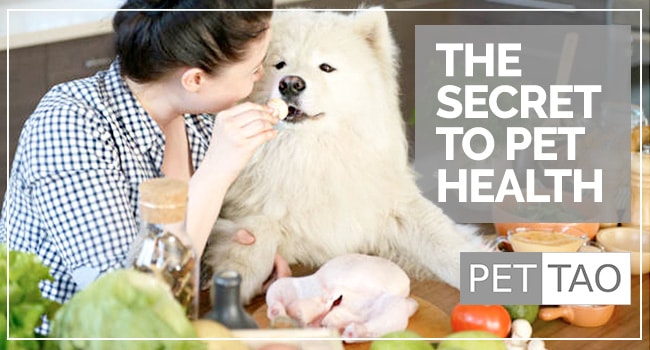So, you want to know the secret to having a healthy pet? Great!
As a veterinarian, I give this piece of advice daily, and it keeps pets healthy.
Before I reveal the secret to keeping your pet healthy, I want to tell you why the secret is so important. The secret’s
importance lies in the fact that if followed, you can eliminate many of the chronic diseases seen in pets.
Diseases such as:
- Cranial cruciate disease
- Heart problems
- Collapsing trachea
- Back issues
- Geriatric pain and debilitation
Unfortunately, I see these same diseases every day in practice.
But, as I said before, you can lessen and sometimes eliminate the chance of your pet acquiring these diseases with one
simple change. It won’t cost you a dime. In fact, it will save you money.
Sound too good to be true?
The secret to keeping your pet healthy:
Quit feeding your pet so much food!
Do you know how many times I tell people: “You are what you eat.” Or, “Do him a favor and slow down on the treats.”
It seems like I talk about these things all day long, and for some reason, it just doesn’t resonate.
People don’t seem to understand, or maybe, they don’t want to understand. I don’t know. But, it’s quite frustrating, yet it’s common in veterinary medicine.
Picture Ms. Jones and me in the exam room. Ms. Jones loves FiFi. However, she ignores my advice.
For years, I have been trying to persuade Ms. Jones to give up the peanut butter and jelly sandwiches.
I can hear her now, “FiFi loves her sandwiches and they never seem to bother her stomach.”
“But Ms. Jones, FiFi is ten pounds overweight and she weighs fifteen pounds.”
Now, this case is about feeding the wrong kind of food, not necessarily too much food, but you understand.
To return to the point, pet food manufacturers and sellers won’t necessarily agree with me, but if you want your pet to be healthy, then follow my advice.
It’s simple: feed your pet less food.
Science backs up my secret.
“Dietary restriction started on either weanling or middle-aged rats or mice increases maximum longevity, reduces the incidence and delays the onset of several cancers and other late-life diseases, and retards changes in diverse indexes of biologic age.”
-Richard Weindruch, Roy Walford, Suzanne Fligiel, and Donald Guthrie
Department of Pathology, University of California
You may have noticed this study was done on mice and rats, not dogs and cats. Doesn’t really matter. This secret cuts across the animal kingdom and applies to all animals.
Free Choice vs. Portion Control
Always choose portion control, never a free choice.
Unless your veterinarian recommended free-choice feeding, my recommendation is to feed fewer calories through smaller portions.
This recommendation goes right along with the instincts and behavior of our pets.
Like wolves, domestic dogs and cats are designed to eat a full, healthy meal all at once, rather than graze all day like a horse, cow, or goat.
Free choice feeding leads to problems such as finicky eaters, low food drive (affecting training effectiveness), and obesity. You can avoid these problems by feeding smaller portions.
So, take a look at your pet!
Think logically about how small their stomach must be. In fact, a cat’s stomach is about the size of an egg and a dog’s stomach is about the size of your fist.
Instinctively, dogs and cats have been programmed to hunt for a meal, eat it, then take a nap.
Just like me!
My mantra is: “As with humans, so it is with your pets.”
Ideal health and harmony are achieved through having an ideal weight.








